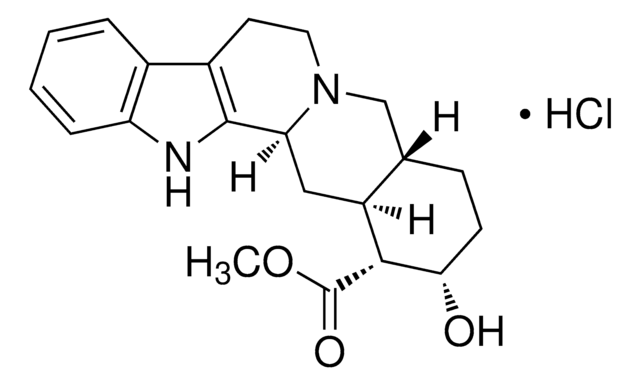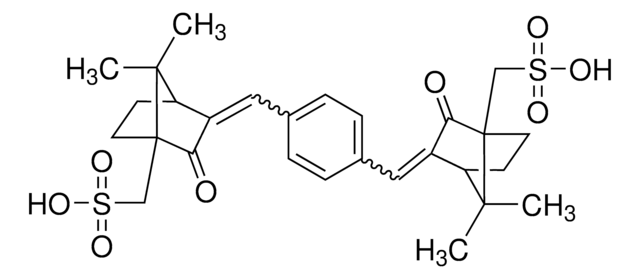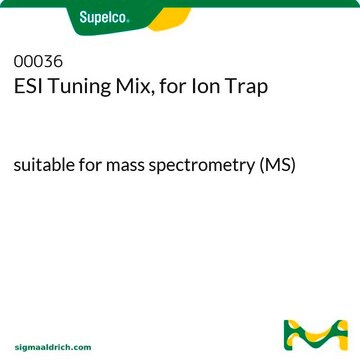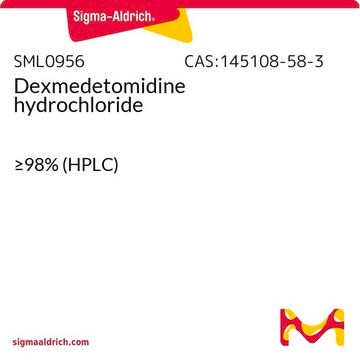13630-U
MCI GEL® CHP20P Polymeric Adsorbent
700 mesh, bucket of 500g
Synonym(s):
C18 silica, 200-400 mesh, 40-75 micron
Sign Into View Organizational & Contract Pricing
All Photos(1)
About This Item
UNSPSC Code:
23151817
NACRES:
SB.52
Recommended Products
product name
MCI GEL® CHP20P, bucket of 500 g
form
solid
packaging
bucket of 500 g
technique(s)
LPLC: suitable
solid phase extraction (SPE): suitable
surface area
~500 m2/g
matrix
styrene-divinylbenzene
matrix active group
polymer
particle size
75-150 μm
pore size
~1.30 mL/g pore volume
400-600 Å mean pore size
density
1.01 g/mL at 25 °C (true wet)(lit.)
separation technique
reversed phase
Looking for similar products? Visit Product Comparison Guide
Related Categories
General description
MCI GEL® CHP20P is a highly porous styrene-divinylbenzene polymer resin used as column packing material.
Application
MCI GEL® CHP20P was used in testing solid phase enrichment of phosphomolybdenum blue .
Polyaromatic adsorbent resin designed for biopharmaceutical separations: aromatic compounds, peptides, steroids, desalting, etc. Very good for reversed phase chromatography applications, even with nonaqueous solvents.
Legal Information
MCI GEL is a registered trademark of Mitsubishi Chemical Corp.
Storage Class Code
11 - Combustible Solids
WGK
WGK 3
Flash Point(F)
Not applicable
Flash Point(C)
Not applicable
Personal Protective Equipment
dust mask type N95 (US), Eyeshields, Gloves
Choose from one of the most recent versions:
Already Own This Product?
Find documentation for the products that you have recently purchased in the Document Library.
Highly sensitive flow analysis determination of orthophosphate using solid phase enrichment of phosphomolybdenum blue without need for organic solvents in elution.
Heckemann, H-J.
Analytica Chimica Acta, 410, 177-184 (2000)
N Okamura et al.
Phytochemistry, 37(5), 1463-1466 (1994-11-01)
Three new flavonoid glucuronides, luteolin 3'-O-beta-D-glucuronide, luteolin 3'-O-(4"-O-acetyl)-beta-D-glucuronide, and luteolin 3'-O-(3"-O-acetyl)-beta-D-glucuronide, together with hesperidin, were isolated from 50% aqueous MeOH extract of the leaves of rosemary. The structures were established by chemical and spectroscopic methods. Their antioxidant activities were evaluated
Our team of scientists has experience in all areas of research including Life Science, Material Science, Chemical Synthesis, Chromatography, Analytical and many others.
Contact Technical Service






